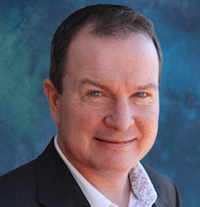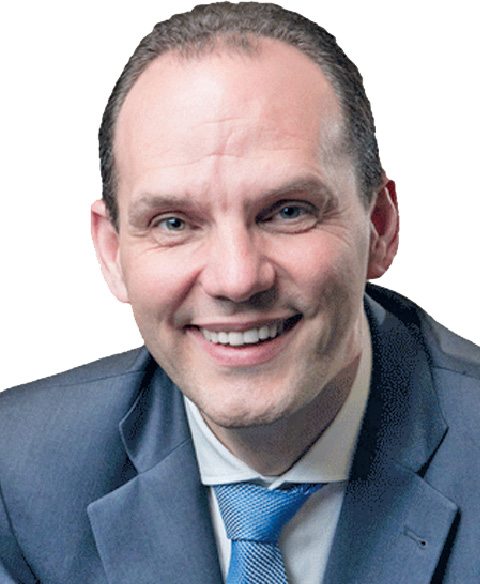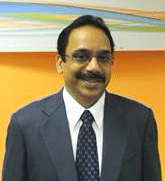Element14 recently inaugurated their biggest office in Bengaluru, India, a behemoth over 33,000 sqft big, with support for Indian as well as global services. EFY caught up with element14 executives, Graham McBeth, Ralf Buehler, and Uma Pingali as they took us on a guided tour along a panoramic view of the new space.

Q. Can you please tell us a bit about element14 and your Avnet acquisition last year?
A. Graham: element14 is a large company, we are owned by Avnet since last one year. We have spread in Europe, North America, Asia pacific, this is our element14 component business. We have another company which sell more electrical wholesale products, they have a business around 210 million. The main element14 component business represent in India or in Asia contains with in the 117 million of APAC. We have 2 million customers, and we have a large customer care. We get about 30 thousand new customers in to the business every month. Lot of customers coming and finding us and buying new things, which is exciting for us. We have 8 warehouses, we still believe in having warehousing course to the customer, we have a 3 PL warehouse in Bangalore or in India. We have invested quite a lot in the last 6 months in inventory. We have an amazing element14 community, we have about 500 thousand people now in our community. Electronic engineers speak to each other about product solutions, we run lots of road tests, events, webinars etc. Another complement is Avnet recently bought a company called Hackster, which is world’s second biggest community, they have 300 thousand members. So Avnet now the largest communities in the world, and we collaborating together with element14. We have taken advantage of each other’s skills, and comparing with shared experiences.

Q. What are the main focus areas for element14 moving forwards?
A. Ralf: Especially in the electronic industry, industry is changing quite a bit from traditional OEM’s types with product scape develop, more in to a network environmental development. There are lot of IOT innovations happening in non-traditional companies. So we really focused on 4 segments across the whole value chain, we are really focusing on education, because we try to help people to get in to engineering and also help them, create business out of the education. We support research and design, idea creation and realizing these ideas. Typically lots of technology information is required, lots of fast delivery of small quantities initially to get things started early. We are trying to help the idea getting into production. We offer not just wide range of components, but all types of tests and measurement equipment, anything that would speed up your development cycle time. Single board computer for that matter is a platform, wherein you don’t have to develop from the ground up for yourself. End of all of that, we trying to make your production seamless by giving you the components, helping you to maintain your machines or in the worst case, when products get obsolete, help you to re-engineer your products again.
Q. Please talk to us about the boards business, are Customized boards making a comeback?

A. Graham: For us, boards are very attractive business with limited competition. We do a 100 million dollars of business in boards. So we are trying to differentiate customized boards more and more now. We are looking at kitting options for customers, providing better tools for coding large belt of material etc. We want to continue to focus on being a differentiated distributor in the market place.
Q. I think BBC has micro-bit, right? Micro bit was started off with very amazing idea, to get children in to programming, Now it’s coming to India. Talk to us about that.
A. Ralf: Yes it is very exclusive, we manufacture micro-bit, and it is coming to India now. When we talk about customization, the micro bit is not really the product we would customize, because it has got core functionality, which is trying to get children or students into programming. As a next step, you could say a Raspberry Pi coming from micro bit, there we can do customization. If you need even more power, again we have a BB board, there you can do customization. In IoT space, around the world, lot of software element of app building and cloud based services, people don’t necessary want to build hardware. The hardware platform is what they can utilize to create their products, that’s we are heavily focused on open source hardware, is really we considered the next big battle ground, because the more you can proliferate the board in to the market, the eco system will going to be better in terms of developing software by developers, more software code available easier to get in to the market. That way we are trying to help through manufacturing and selling it.
Q. Is it different from having COM or a SOM or SBC?
A. Ralf: It is very different, because we typically don’t change the core, it is not taking the micro-controller out, with typically adding memory or different connections, or different abilities to transmit wireless with. So the core stays the same, so ultimately for the customers, it wants to go in to the volume production, that doesn’t want to use the standard board, that’s what we do for him. We enable him to have a board that at the core, is still able to utilize the whole ecosystem that exists. But he is able to plugin, connect or drive, anything he wants to drive.
Q. How does element14 aim to differentiate themselves from other board players?
A. Graham: We serve the customers the way they want to be served. If a customer wants someone from element14 to visit him/her, we have that option and if the case is otherwise, they can go online for their needs. Even if you are a fully online customer, we send a sales person, because sales person comes to tell you about our new web capability wherein they talk about the launch of our new franchise last month etc. The sales person even if they are not taking orders themselves, they can still drive the web traffic.
Q. What kind differentiation do you have in your online marketing, how is the experience for someone who visits it, difference from someone visits through online?
A. Ralf: When you look at the core of online today, is all about can people find what they are looking for on your website, can they transact conveniently with you, that’s the whole experience. When you say how you differentiate within a confined space, obviously we are trying to optimize our search functionality, external and internal.
Uma: How many companies keep 6000 or 7000 of products in stock for supply; that is one area of differentiation. It is accentuated by the online marketing, but the core underline proposition is so strong. E-commerce actually accentuates it and makes it visible to that many more customers.
Ralf: We make lot of content which customers may require, there is no shortage of content available in the market, but the only thing that matters is how do you easily find it, and how do you represent it? If you’re looking at a Micro-controller, ideally we want to see the dimension of how this looks, how do I put it in a report, how do I use it, where do I find help and so on, hence we’re trying to put together these kind of things. When people find us, they do not have to go somewhere else, because they have all the data in their fingertips. We make sure that these products in stock, so that an engineer finds what he is looking for, to just press a button to get the product, by next day he will have the product in his hands, to do his development work.
Uma: We have contact centers, we managing the phones in local language. In Bangalore somebody get stuck in website, once a clarification on the part number, they call over tech support, we connect him with Kannada speaking person, and telling them what they can use, how they can use, what variants are available. If you want to talk to somebody live, that is also possible, but again the back bone is still the web, which is actually a showcase window showing everything.
Q. Please tell us a bit more about your new Bengaluru office.
A. Graham: Our new office is spread over 33,000 sq. ft. and it is one of largest office of electronic component distributor. This is out largest investment in India and we have 234 employees where 80 of them support through sales in India and the remaining of 150 people help our global business with technical support or e- commerce. We believe geography encounter and the need of local sales presence and thereby we have planning to grow business across India as our business worth is US$ 20 million at current. We have highly skilled people and we are expecting to continue growing in India.
Q. Current government of India emphasis on campaign “Make in India” instead of global infrastructure so as to add more value to India. There is also push toward low-cost value add and digital India, so what is your thought on it?
A. Uma: We are doing massive research on it. More and more domestic as well as MNC electronic component distributors are trying to access the Indian market and it is rapidly growing over a period. Our observation is that government has become very conscious nowadays and therefore we are also being avail with sufficient opportunity to deliver the service as well as products. In past days, India was known for software but nowadays the scope is being expanded into design service, engineering service, compliances, quality control, product data etc.






